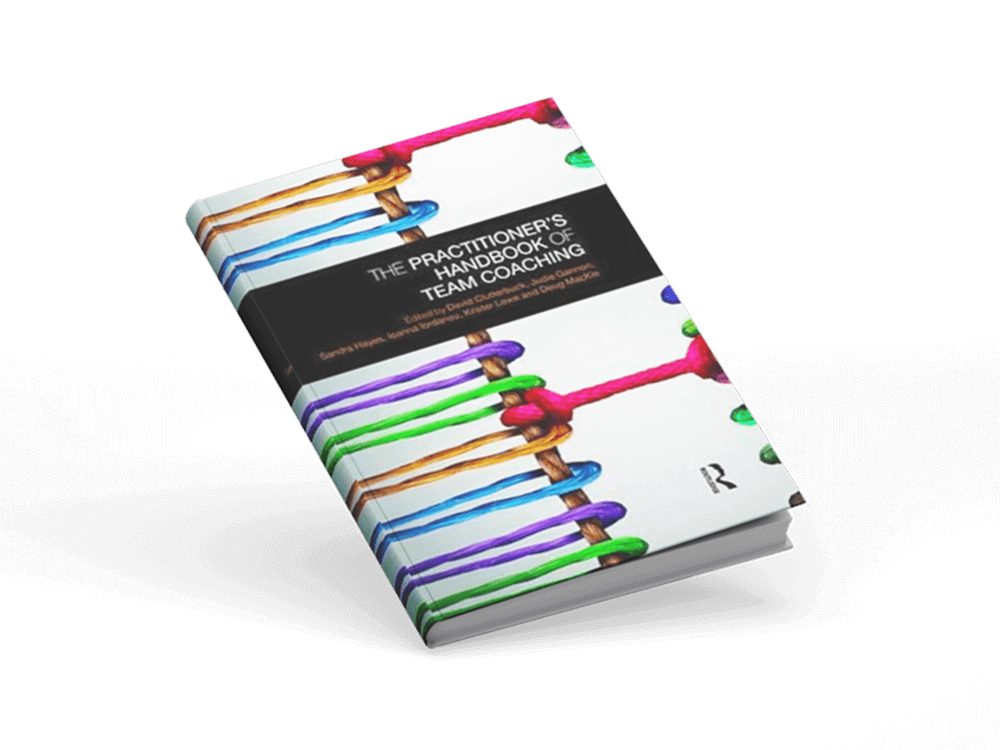Murphy, C., & Sayer, M. (2019). Standing on the shoulders of the science of team effectiveness: building rigour into your team coaching design. In The Practitioner’s Handbook of Team Coaching (pp. 75-88). Routledge.
This chapter identifies empirically sound lessons for team coaching practice by harvesting patterns from scholarly research on influences on team effectiveness, and drawing out their implications for team coaching. It provides both team coaching researchers as well as practitioners with a solid foundation of theory and research upon which future efforts can build and extend the growing profession and impact of team coaching in organizations. Shaping the features of the team’s design is an essential leadership activity, because a high quality team design establishes powerful and persistent positive influences on the key processes that drive effectiveness over time. Self-managing teams need considerable focus on the design and launch capabilities of leaders. Coaches who have insight into design problems may help the leader by identifying an opportunity to change the basic design of the team, or create such an opportunity themselves.
Wageman, R., & Lowe, K. (2019). Designing, launching, and coaching teams: The 60–30–10 Rule and its implications for team coaching. In The Practitioner’s Handbook of Team Coaching (pp. 121-137). Routledge.
This chapter examines how team effectiveness is measured in the literature, the key components and outcomes that impact team effectiveness, and consequently how team coaching interventions might be approached. It highlights some of the gaps for future research and provides insight into how the co-authors bring together theory and practice in their own team coaching practice. Team effectiveness is an assessment of the quality of team performance outcomes in relation to specified standards, such as task outcomes, team member satisfaction, team viability and learning outcomes and over 130 models or frameworks of team effectiveness exist. To understand how team coaching contributes to team effectiveness, an understanding of what has being measured as team effectiveness is crucial. The mediating factors explain how team inputs are transformed into outcomes and the recent thinking in team effectiveness literature is that they consist of processes and of emergent states.


